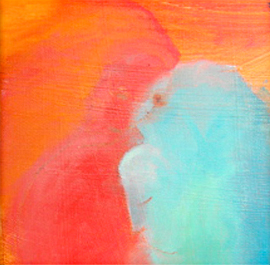Becoming Truly Human
We often use the term ‘only human’ to convey our weaknesses and our failings. But there is a further dimension to our being human. It is a dimension connected with the future, and with developing and expanding our specifically human potential.
We all have a physical, material form. In this, we are like the rest of the mineral world. This physical form, our body, is moreover alive; it breathes, it reproduces, it metabolizes. In these living functions, we have capacities that we share with the plants. We also have feelings and emotions; we act and react; we perceive and cognize. In this we are akin to the animals.
What is left? Where are we uniquely human?
One of the places in which we are uniquely human is in our self-awareness. We are aware of ourselves, as a self, as a unique and more or less discrete entity. We have a memory of that self that goes back to early childhood. Furthermore, this self-aware self is capable of learning to do what it cannot yet, to be what it is not yet. This capacity is far greater than what can be trained in an animal.
This self is also capable of shame (self-judgment), and is capable of conscience, of knowing what kinds of decisions I can or ought to make in the future. Animals act and react by instinct (so do we, sometimes, out of our animal nature). But human beings can act as a sole result of their thinking. And thinking is a basis for creativity.
This is because human beings can make decisions. They can decide to over-ride their natural instinct for self-preservation. They can decide to overcome the instinct for preservation of the species if necessary. Human beings can set goals and figure out the steps to realize those goals. They can create works of art. They can try to consciously serve what is good, what is true, what is beautiful.
Human beings can also decide to put someone else first. In other words, human beings can decide to over-ride their plant and animal natures and can consciously participate in their own further evolution.
So, becoming truly human is not merely to rue our failings and weaknesses. Rather, becoming truly human involves building the strength of our self-awareness and the power to carry through on our decisions in creative ways.
At the same time, becoming truly human involves developing the capacity, paradoxically, to override our own naked self-interest, and to learn to sacrifice, to make an offering for the benefit of others.
In the Sunday Service for the Children, we hear that human life becomes desolate and empty without love. We also hear that Christ is the Teacher of Love. To become truly human is to become a student on the Christ path. On this path we are learning how to love, creatively. We set ourselves upon this path when we decide to carry out our intention to evolve ourselves along a trajectory of love.
Where are we uniquely human? In those moments when our creative self shines forth selflessly.
| Teaching/Learning | — | Receiving the Message |
| Offering/Giving | — | Offertory |
| Changing/Transforming | — | Transubstantiation |
| Uniting | — | Communion |


Leave a Reply
Want to join the discussion?Feel free to contribute!